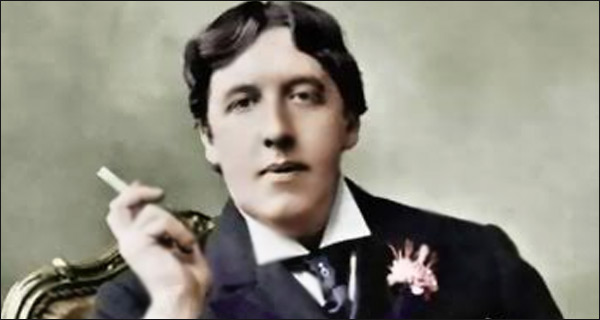But mysterious ill health -- headaches, body pains, weakness and trembling in the limbs, partial facial paralysis and exhaustion -- dogged her throughout her self-imposed exile.
In despair, practically housebound, she turned to a high-society Italian surgeon, Luigi Maria Bossi, who vowed to restore her to health with a radical gynaecological procedure.
Five days after going under the knife, she was dead, aged just 40.
What had happened?
A slew of unpublished letters, unveiled by Constance's and Oscar's grandson, Merlin Holland, could provide the answer, The Lancet reported online on Friday.
Analysed by clinical pharmacologist Ashley Robins at the University of Cape Town Medical School in South Africa, Constance's symptoms point to a disease that, today, is very well known: multiple sclerosis.
The letters suggest that for its first seven years, the disease was of the "relapsing-remitting" type, in which acute episodes were interspersed with periods of recovery, according to the Lancet review.
But in the last two years, "her disability became permanent with gradual deterioration... (and) subsequently developed into secondary progressive multiple sclerosis," it said.
Constance was dealt a doubly tragic blow.
Multiple sclerosis was described in 1868 by a ground-breaking French neurologist, Jean-Martin Charcot. Twenty years later, the diagnosis was fine-tuned by an eminent British doctor, Sir William Gowers.
But it took years for awareness of this novel disease to spread among physicians of the day.
"Constance's doctors of the 1890s might have been unaware of this newly defined diagnosis and, therefore, puzzled by her unusual symptomatology," according to the Lancet study, co-authored by Holland and Robins.
A disease of the immune system, in which the body's defences attack the protective myelin sheath around nerve fibres, multiple sclerosis remains incurable today, although there are drugs to slow its progression and ease symptoms.
Constance's second great misfortune was to fall under the spell of Bossi, who believed that insanity and neurological problems in women lay with lesions in the uterus and ovaries, for which surgery was essential.
Weakened by vomiting and dehydration after Bossi's surgery to remove a uterine fibroid, Constance probably died of an obstructed intestine or blood poisoning, the documents suggest.
A professor of gynaecology at Genoa University and a fellow of the British Gynaecological Society, Bossi fell out with his colleagues for championing surgery to fix now-discredited "pelvic madness."
He was eventually suspended from his professorship for two years, before being shot dead in his consulting room in 1919 by the jealous husband of a patient.
"Ultimately," notes the paper, "both Bossi and the hapless Constance met their end tragically: he by the bullet of an assassin and she by the knife of an irresponsible surgeon."
-----------------------------------------------------------------------------------------------------
In despair, practically housebound, she turned to a high-society Italian surgeon, Luigi Maria Bossi, who vowed to restore her to health with a radical gynaecological procedure.
Five days after going under the knife, she was dead, aged just 40.
What had happened?
A slew of unpublished letters, unveiled by Constance's and Oscar's grandson, Merlin Holland, could provide the answer, The Lancet reported online on Friday.
Analysed by clinical pharmacologist Ashley Robins at the University of Cape Town Medical School in South Africa, Constance's symptoms point to a disease that, today, is very well known: multiple sclerosis.
The letters suggest that for its first seven years, the disease was of the "relapsing-remitting" type, in which acute episodes were interspersed with periods of recovery, according to the Lancet review.
But in the last two years, "her disability became permanent with gradual deterioration... (and) subsequently developed into secondary progressive multiple sclerosis," it said.
Constance was dealt a doubly tragic blow.
Multiple sclerosis was described in 1868 by a ground-breaking French neurologist, Jean-Martin Charcot. Twenty years later, the diagnosis was fine-tuned by an eminent British doctor, Sir William Gowers.
But it took years for awareness of this novel disease to spread among physicians of the day.
"Constance's doctors of the 1890s might have been unaware of this newly defined diagnosis and, therefore, puzzled by her unusual symptomatology," according to the Lancet study, co-authored by Holland and Robins.
A disease of the immune system, in which the body's defences attack the protective myelin sheath around nerve fibres, multiple sclerosis remains incurable today, although there are drugs to slow its progression and ease symptoms.
Constance's second great misfortune was to fall under the spell of Bossi, who believed that insanity and neurological problems in women lay with lesions in the uterus and ovaries, for which surgery was essential.
Weakened by vomiting and dehydration after Bossi's surgery to remove a uterine fibroid, Constance probably died of an obstructed intestine or blood poisoning, the documents suggest.
A professor of gynaecology at Genoa University and a fellow of the British Gynaecological Society, Bossi fell out with his colleagues for championing surgery to fix now-discredited "pelvic madness."
He was eventually suspended from his professorship for two years, before being shot dead in his consulting room in 1919 by the jealous husband of a patient.
"Ultimately," notes the paper, "both Bossi and the hapless Constance met their end tragically: he by the bullet of an assassin and she by the knife of an irresponsible surgeon."
-----------------------------------------------------------------------------------------------------









 Home
Home Politics
Politics











